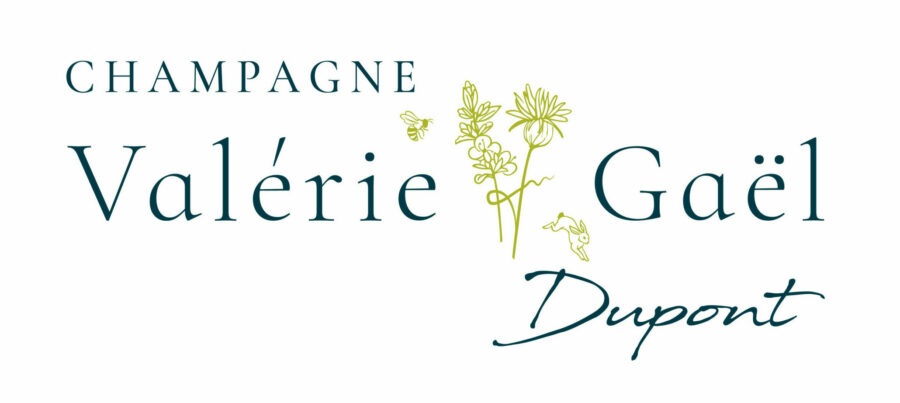Committed to
agro-ecological approaches
“Naturally committed”
This is our slogan and our daily leitmotif!
Like any good winemaker, we are passionate about our craft and the wines we make. But what drives us above all is advancing our practices towards greater sustainability, in our grain fields as well as in our vineyards.
Agroecology is an approach to agriculture inspired by the workings of nature to cultivate the land more sustainably. It aims to preserve biodiversity, improve soil health, and reduce environmental impact by promoting practices that respect ecosystems.
Why this commitment to agroecology?
Our commitment has matured through our research and the sharing of experiences between winegrowers, farmers, agronomists, and scientists.
The turning point for us was a visit to the “Oberacker” experimental plots at Inforama Rütti in Zollikofen, Switzerland, in 2014. This study trip awakened us to the problem of soil erosion, linked to the loss of organic matter.
This led to a profound rethinking of our practices. We then attended various training courses and became aware of the incredible ingenuity of nature, upon which our practices are now based.
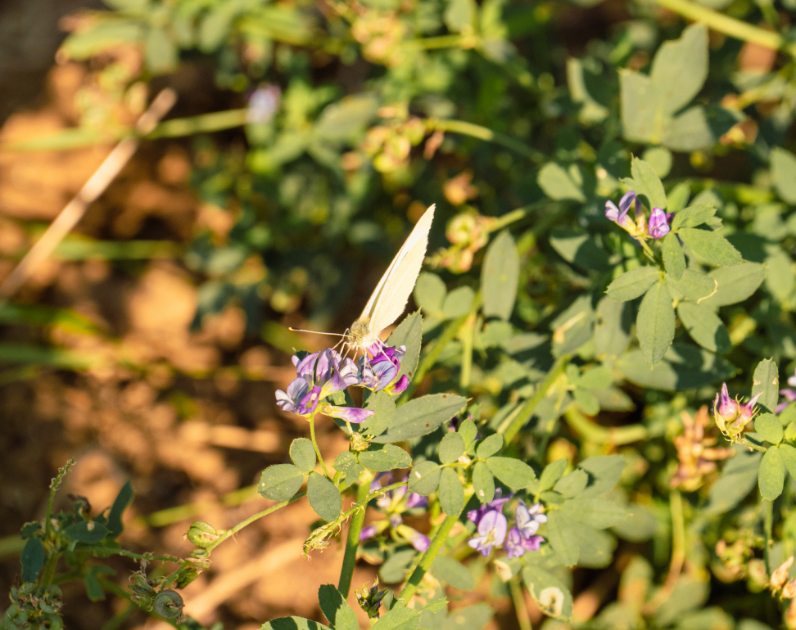
Our toolbox
Plant cover
In late summer, we sow plant mixes between the rows of vines. They grow in the fall and spring, then are mechanically destroyed at the end of April so as not to interfere with green work. This technique protects the soil from erosion, improves its fertility and water retention, and encourages the return of insects and animals to our plots.
Trees plantation
To further restore biodiversity, we’re reintroducing trees, whether around our vineyards, agricultural plots, or our farm. They provide habitats for insects, birds, and small game. Since 2019, we’ve replanted more than 1,000 trees. 400 of these were planted during a participatory project with our children’s school!
Using plants to care for our vines
To help the vines defend themselves against diseases and parasites, we favor natural products such as nettle, comfrey or alfalfa purines, or even horsetail or meadowsweet decoctions. These various plant macerations are made by us, and are also widely used in our fields.
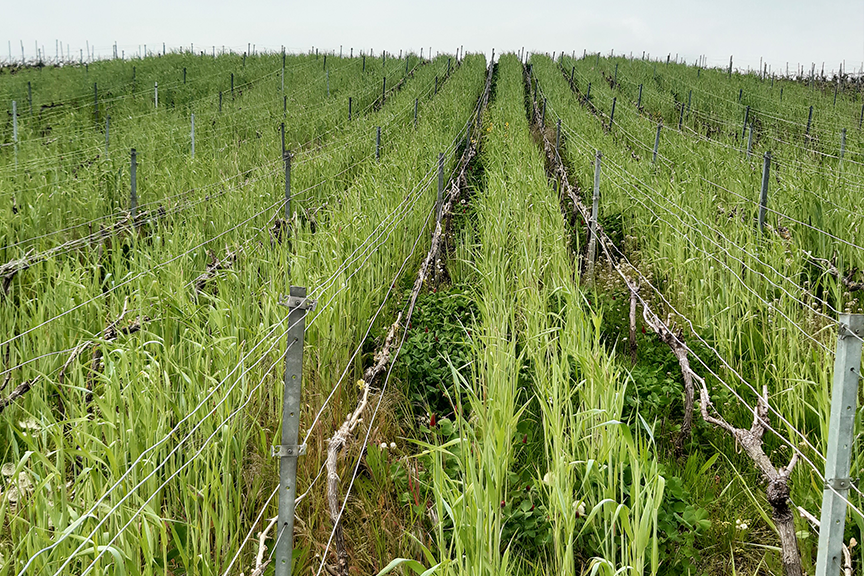
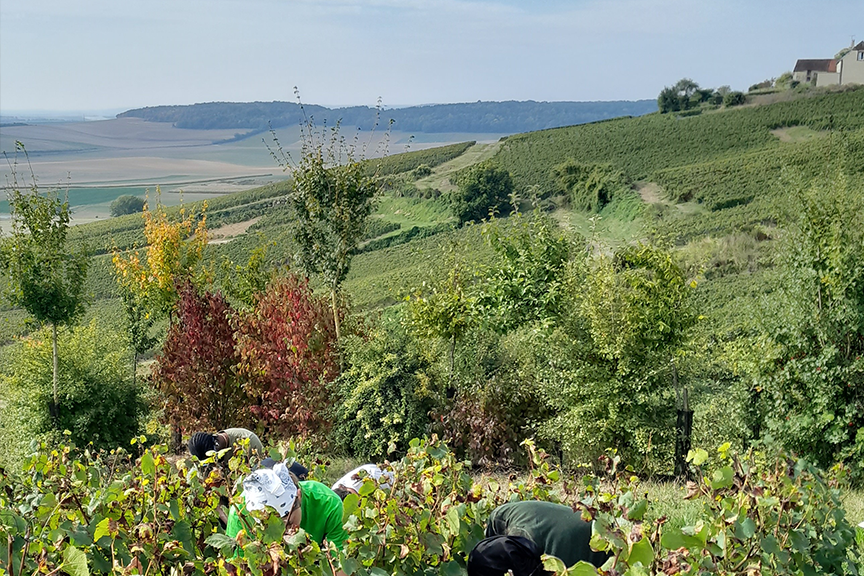
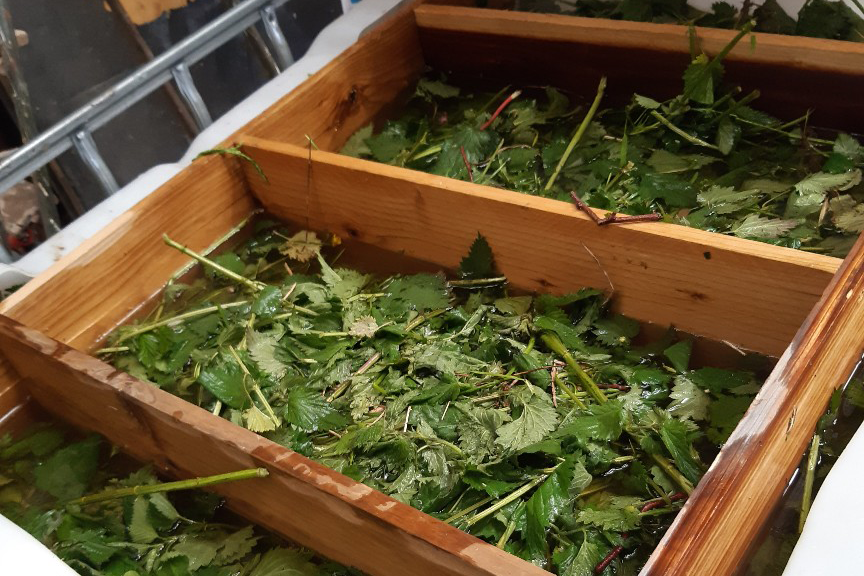
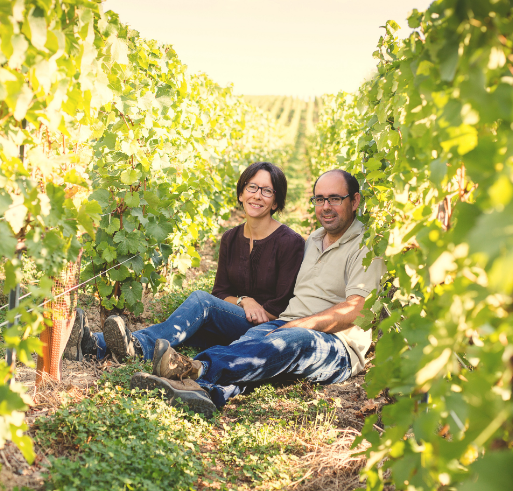
The transition to organic viticulture
In order to demonstrate our progress towards more sustainable viticulture, in 2019 we passed the certifications Haute Valeur Environnementale and Viticulture Durable en Champagne.
Then, thanks to agroecological practices, we took the step, in 2020, of eliminating all use of chemical products in our vineyards, by launching our conversion to Organic Agriculture. 3 years later, in 2023, we got the AB certification.
"Because the agroecological transition only makes sense if it is widespread across the entire country, I am involved in the association Pour Une Agriculture du Vivant (For a Living Agriculture), a key organization in the agricultural and food transition. This movement works for the emergence of a resilient agricultural model that also creates value, thanks to agroecology. It involves many stakeholders in the agricultural and food ecosystem. Thanks to the exchange of experiences between professionals, we feel less alone and are more daring to move forward."
Gaël
Champagnes as close as possible to the terroir
All these initiatives are part of our vision of environmentally friendly viticulture. We combine innovation and tradition to protect the soil and preserve biodiversity, and create more authentic champagnes.
